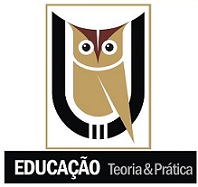De objetos a sujeitos de pesquisa: contribuições da Sociologia da Infância ao desenvolvimento de uma etnografia da educação de crianças caiçaras
Palabras clave:
Pesquisa etnográfica, Sociologia da infância, Crianças caiçaras.Resumen
Uma pesquisa etnográfica com crianças exige a precisão da descrição densa dos fatos observados, tal como as que envolvem outros grupos sociais. Pesquisas com crianças, entretanto, são recentes, principalmente pela presença da preposição com, que significa reconhecê-las como atores sociais e incluí-las como participantes ativas no processo de pesquisa, possibilidades abertas pelo campo da sociologia da infância. Ao se adotar esta perspectiva, procura-se o desenvolvimento de uma postura diferenciada no campo de pesquisa, a de adulto atípico (CORSARO, 1990, 2002, 2005; FERREIRA, 2008), a fim de um aprofundamento nas culturas das crianças, ao mesmo tempo em que se investigam as significações mais próximas de sua visão de mundo. Os conceitos teórico-metodológicos desenvolvidos pelos estudos da sociologia da infância, suas relações com os estudos da antropologia, e a pesquisa etnográfica, em andamento, com crianças caiçaras, constituem a base deste texto, cujo objetivo é refletir sobre a entrada no campo e a posição do adulto nas pesquisas com crianças.Descargas
Publicado
Cómo citar
Número
Sección
Licencia
Os Autores que publicam nessa revista concordam com os seguintes termos:
a) Os autores cedem os direitos autorais à revista, com o trabalho simultaneamente licenciado sob a Creative Commons Attribution License que permite o compartilhamento do trabalho com reconhecimento da sua autoria e publicação nesta revista.
b) A política adotada pela Comissão Editorial é a de ceder os direitos autorais somente após um período de 30 meses da data de publicação do artigo. Transcorrido esse tempo, os autores interessados em publicar o mesmo texto em outra obra devem encaminhar uma carta à Comissão Editorial solicitando a liberação de cessão dos direitos autorais e aguardar resposta.
c) Esta revista proporciona acesso público a todo o seu conteúdo, uma vez que isso permite uma maior visibilidade e alcance dos artigos e resenhas publicados. Para maiores informações sobre esta abordagem, visite Public Knowledge Project, projeto que desenvolveu este sistema para melhorar a qualidade acadêmica e pública da pesquisa, distribuindo o OJS assim como outros softwares de apoio ao sistema de publicação de acesso público a fontes acadêmicas. Os nomes e endereços de e-mail neste site serão usados exclusivamente para os propósitos da revista, não estando disponíveis para outros fins. This journal provides open any other party  Esta obra está licenciada sob uma Licença Creative Commons
Esta obra está licenciada sob uma Licença Creative Commons










